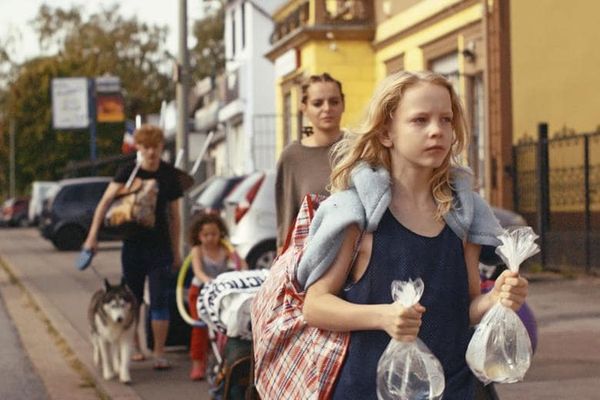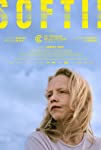Eye For Film >> Movies >> Softie (2021) Film Review
Softie
Reviewed by: Stephanie Brown

Samuel Theis’ Softie is a delicate portrait of the hurdles of social development for someone living in the corners of regional deprivation. Softie observes the cusp between childhood and adolescence through a personal and reflective lens, balancing a docudrama aesthetic and an emotionally charged script. Theis’ direction, like Alex Moratto’s feature Socrates, channels the poetic rusticism of French New Wave in a way that grounds coming-of-age cinema within a symphony of tactile memories.
Ten-year-old Johnny is struggling to envision where he fits in the world, and struggling far more to place himself in the town of Forbach. He lives with his turbulent mother who goes through phases of adoration and drunken fits of aggression, and a brother who spends his days with friends or his girlfriend. With his mother’s alcoholism clear, even to himself, Johnny spends his days going to school and caring for his young sister. When a new teacher appears, Johnny becomes infatuated with the man who seems smart, cultured, and has lived outside of the town he longs to leave.
There are few films that are able to resurrect and communicate the feelings of emotional displacement in childhood to the level that Softie achieves. From Johnny’s bursts of frustration at being the black sheep of the family, to the painful moments of stillness as the shy child in a classroom of confident loudness. Theis approaches the coming-of-age formula in a refreshingly new way that focuses on the beauty of weakness.
The use of non-professional actors, improvised dialogue and self-reflective writing invite the spectator to decode the semiotics of Softie’s journey through childhood within the lens of their own evocations, as if they were walking under the bridge with Johnny after leaving school with a mixture of insight and confusion. Softie uses the techniques of French New Wave to enhance the complexity of life's smallest details, and how they can often contribute to our most significant intellectual awakenings. It is possible that Theis’ predominant desire was simply to document different parts of youth as he, and others around him experienced it.
At the heart of Softie, from beautiful camera work, and mesmerising performances, is the screenplay. Softie manages to achieve a pitch perfect tone - that despite the bleakness of the themes at the centre of Theis’ screenplay, it never descends into a dark drama. There is always an undertone of optimism in every essence of futility, poetry within each transgression, and an air of tranquillity in moments of chaos. Softie reminds us that there is no salvation in periods void of suffering.
Samuel Theis’ Softie embraces the limitlessness of self-conscious art, and the creative flexibility of coming-of-age cinema. Much like Johnny, many might experience Softie as a story of cause and effect, during the struggles of being young and lost. And for others, they might experience Softie like Theis - as a series of instances, that will never be fully understood, even when the pain of childhood is a distant memory.
Reviewed on: 09 Jul 2021














